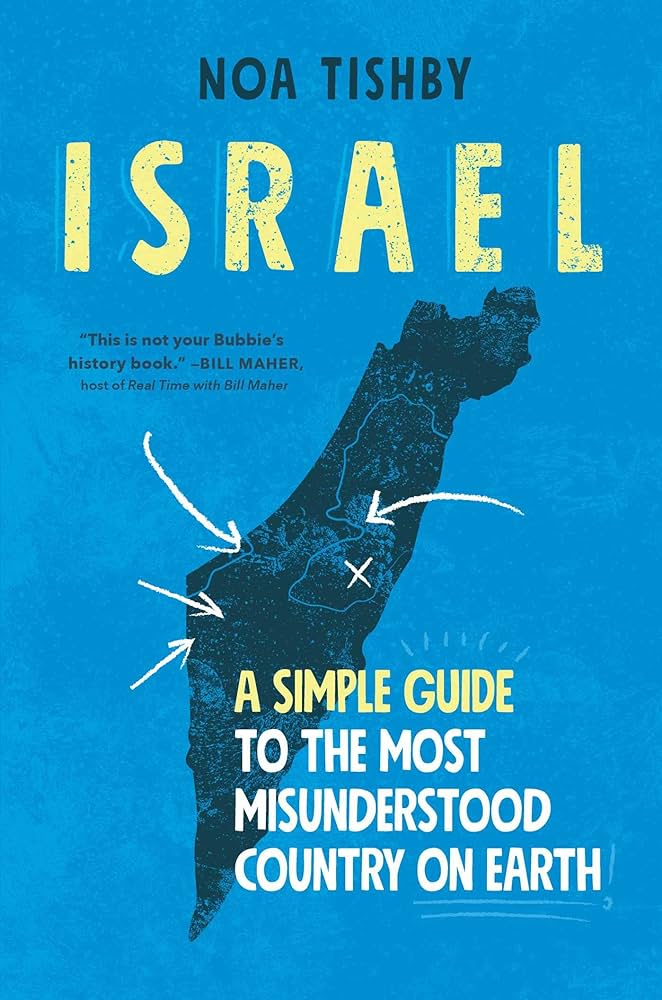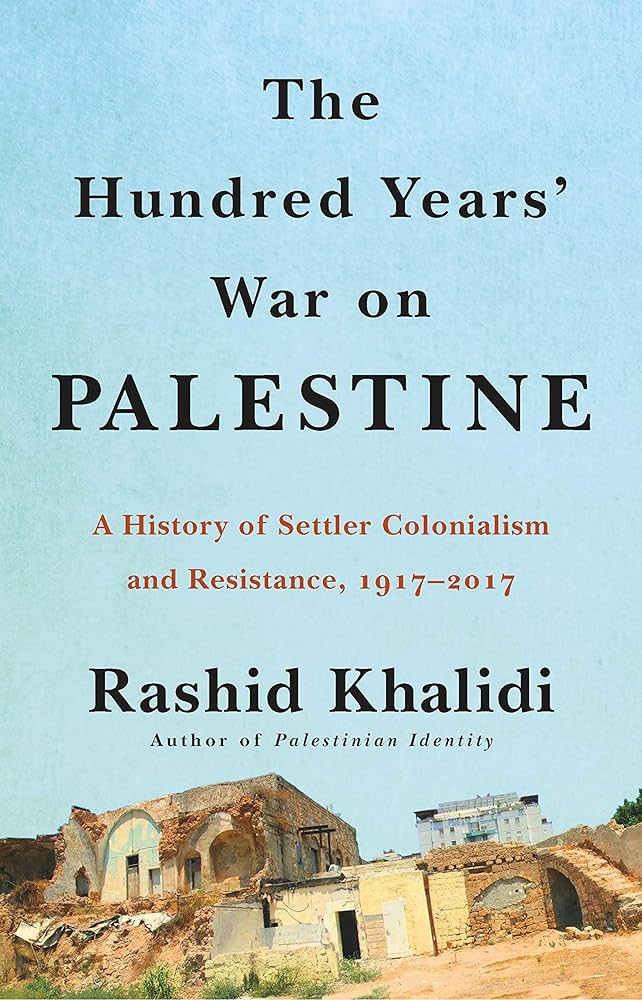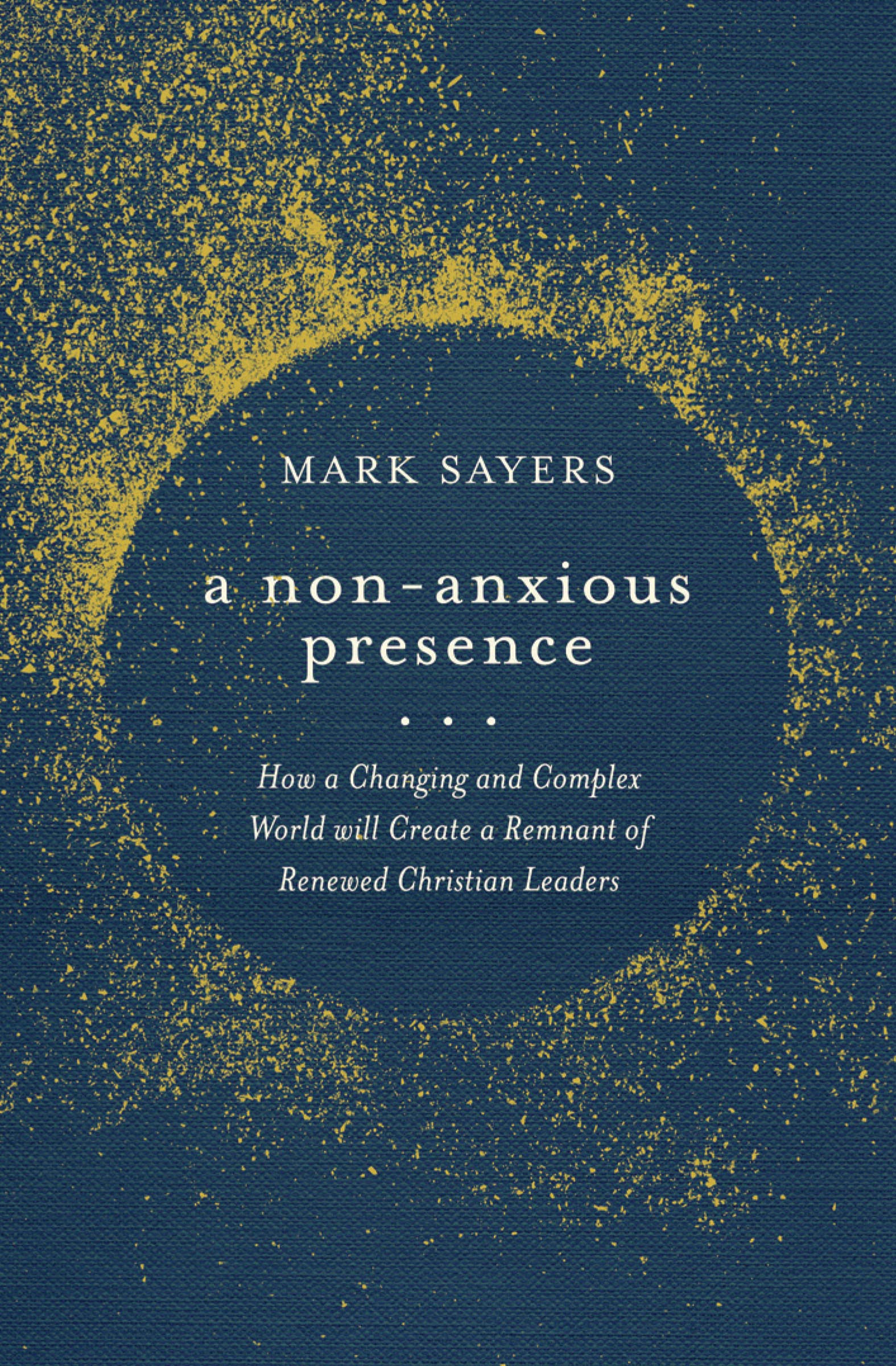My reflections on the current crisis in the Middle East
There are two groups of people and only one land. Neither group seems willing to share the land, and both believe it’s their right to keep it for themselves. Is one group more right than the other? Noa Tishby says Israel is more right than Palestine, and Rashid Khalidi says that Palestine is more right than Israel. So, who is telling the truth and who is making up stories? I’m going to put Noa and Rashid in a head-to-head debate and then attempt to draw some conclusions. I want to finish my blog by offering some measure of hope for the dumpster fire that is the Middle East, but you’ll have to wait until the end to see if any such hope comes forth.


Noa says…The Jews belong in the land; they have a 3000-year unbroken line of habitation, and though most Jews were dispersed throughout the world after Israel’s destruction in A.D. 70, they never stopped hoping for a return as the famous Jewish prayer lifted up by millions of Jews through the centuries “Next year in Jerusalem.” indicates.
Rashid says… The Palestinians made up the vast majority of the population of what is now the land of Israel. Palestinians were the indigenous people of the land. European Jews came with the support of the great Western powers and started a colonial project which uprooted and destroyed innocent and vulnerable Palestinians.
Noa says…The Jews overcame incredible obstacles to return to their ancestral homeland, not the least of which was the Holocaust; they came penniless and broken, desperate to create a safe space for themselves. Certainly, the Balfour Declaration and international support for a Jewish homeland helped the Jews establish a toe-hold in the land, but it was no picnic.
Rashid says… At first, the Palestinians welcomed the Jews, even acknowledging the land as their ancestral space, but as the flood of Jews continued, they began to get a little worried. When Palestinians started getting pushed off their lands by Jewish settlers in the early 20th century, conflicts began to happen.
Noa says… Jews were able to purchase large tracts of land in Palestine from absentee Arab landlords who lived in faraway places and cared little about the land or the Arab peasants who lived on it. Jews bought what was viewed as “Florida swampland” at bargain prices and began to develop the land and work hard to make it prosperous. With new landlords came new tenants. We in Vancouver understand that! Old tenants had to go. That’s how it is. In the early 20th century, the concept of Palestine as a geographical nation-state did not exist. Locals considered themselves as Arabs. It was only after Israel began to take shape that the idea of Palestine came into view.
Rashid says… Well funded, well-armed Zionists began flexing their muscles in the 1920-1930’s. They were protected and supported by the British mandate, and if Palestinians didn’t like it, then it was too bad for them. Finally, enough was enough, and the Arabs of Palestine revolted. The rebellion lasted from 1936 to 1939 and was totally crushed by the British. An estimated 10% of the adult male Arab population was killed, wounded, or deported. Jews capitalized on this.
Both Noa and Rashid agree... During W.W. 2 the British switched sides and began to support the Arabs. Arab partnership was needed to win the war against Hitler, so Jewish immigration was strangled and expansion initiatives curtailed. The Jews who had been trained and armed by the British now turned on them in violence. Britain could not afford to be bogged down in the Middle East battling Jews while Hitler was doing his thing, So the Jews were not crushed like the Arabs had been earlier. At the end of WW2, Britain was finished with colonial endeavours and by 1948, they left, but not before they offered a two-state solution.
Noa says… The two-state solution offered by Britain was a good deal for everyone. 54% of the less fertile land went to Israel, and 46% of the more fertile land went to Palestine. Israel accepted the terms, and most of the world agreed that it was a good plan. The Palestinians and their Arab neighbours rejected the plan and decided to try to exterminate the Jews instead. They lost the war. It should be noted that the Arab countries who participated in this war were not interested in a Palestinian homeland as much as they were in grabbing the land for themselves. Jordon in particular.
Rashid says… The partition plan was an insult; why would we share our land with these European Jews? Palestinians felt as though an armed struggle was the only option to save their land from these colonialists. But we were depleted, and our Arab friends were not much help. The Jews were the Goliath of this war, and we were the David, but we didn’t even have a sling. They smashed us, murdering us, taking our land, and displacing 750,000 of us.
Noa says...About those 750,000, Most left at the urging of the Arab countries who were trying to kill us. We did commit some atrocities, which we have acknowledged and tried not to repeat, But we definitely did not force everyone out at gunpoint. Our constitution welcomes everyone, and we mean that. For the Arabs who remained in their homes and did not fight us, they became Arab-Israelis, a valuable and flourishing segment of our society. They are not second-class citizens. Just ask Arab-Israeli Supreme Court Justice Khaled Kabub.
Rashid says… 1948 is what we call the Nakba. “the Catastrophe” Israel was the bully; they were the aggressors, terrible things were done to the Palestinians.
Noa says… Israel has always wanted a peaceful solution to this problem. We are here. We are not leaving. Acknowledge our legitimacy and let’s make peace has been our committed stance, but even to this day, more than 100 years after conflicts between us started, the Palestinians refuse to recognize our legitimacy. We have attempted nine substantive peace talks over the decades, and all have been rejected by the Palestinians. Instead, we got wars in 1948, 1956, 1967, 1973, 1982, 1987-1993 (Intifada 1) , 2000-2005, (Intifada 2) 2008, 2012, 2014 and then the bloodiest one of all in 2024. Between these wars, we have been constantly subjected to rocket attacks, suicide bombers, and all manner of terrorism. The truth is, if the Palestinians laid down their weapons today, there would be peace. But if the Israelis laid down their weapons today, they would be an extinction-level event upon the Jews. So, how do you work with that? The Lord knows we’ve tried.
Rashid says...Israel has never really wanted peace. They want our land. All the peace deals are disingenuous. Israel will never give up control of the water or air space; they will always control our movements, and slowly but surely, as the talking goes on and on and on, they take our land. They play a long game of strangulation through red tape, zoning changes, and settler expansion. These affronts are punctuated by “justified” wars, in which they disproportionally slaughter us. This most recent war is a prime example of Israel’s unreasonable heavy-handedness.
Both Noa and Rashid agree… The Palestinian leadership has been consistently terrible throughout the generations. Most notably, Yasser Arafat. Adding to this deficit, all the Arab leaders of the surrounding nations have been petty, arrogant and fractious. Rashid says any good leaders that might have arisen were assassinated by the Israelis or killed off by one Arab faction or another. He also points out that Israel purposely exploits Arab disunity to its own advantage. Noa says that the plague of bad leadership is the reason why peace deals never happen, and Israel shouldn’t be blamed for the Arab inability to play nicely together. Both sides point out that the Palestinians got kicked out of Lebanon, Syria, Kuwait, Jordan and Egypt because they became a threat to these countries.
Both Noa and Rashid agree... after the War of Independence in 1948, about 850,000 Jews were forced out of surrounding Arab lands, many losing everything. They were welcomed into Israel with open arms. Meanwhile, these same Arab countries, which had encouraged the Palestinians to leave their homes during the war, refused to take care of them, leaving them in rotting refugee camps and treating them as second-class citizens. With friends like these, who needs enemies? Rashid laments the poor treatment and resents how the Arab countries cared little for the Palestinians other than how their countries might benefit from their suffering. Noa quickly points out that the Palestinians who stayed and became part of Israel have it at least as good, and in many cases, much better than if they had left.
Noa says... she is very concerned about the growth of Haredi Jews in Israel. This ultra-orthodox sect makes up 14% of the population and is the fastest-growing segment in Israel. They are patriarchal, conservative, uneducated (other than the Torah) and are not interested in sharing Israel with anyone but Jews. They have become very politically involved, which is not a good thing.
Rashid says… He recognizes that the terrorism of groups like Hamas doesn’t help the situation. But he thinks Israel’s atrocities are way worse than anything Hamas has ever done. He wishes Israel would have talked with Hamas when they won the elections in 2006 instead of walling them off and turning Gaza into an open-air prison. Israel makes unreasonable demands, and then when resistance crops up, they crush it with absolute brutality. Hamas shoots an unguided rocket that lands in a field somewhere or gets shot down by Israel’s superior defences, and in retaliation, Israel drops 2,000 lb laser-guided bombs, which flatten entire neighbourhoods.
Conclusion
Israel has a right to be in their ancestral homeland. The Palestinians have a right to be there, too. The colonial narrative that Rashid presents is a stretch. Israel was not immediately powerful, nor were the Palestinians helpless victims. Though it is true, Israel has been helped immensely, first by Britain and then by the USA.
Jews worked exceedingly hard to capture the imagination of the world powers so that their dream could become a reality. Meanwhile, the Palestinians failed to appreciate the importance of bringing their side of the story to the ear of the world. According to Rashid, for most of his life, Arafat could care less what the USA thought; this was just one more strategic blunder among too many to count.
The plight of the Palestinians in recent decades is starting to get more traction, mostly because people like Rashid Khalidi are writing instead of blowing things up. But then, Oct 7, 2023, comes along, and sympathies wane.
It would have been good if the two sides could have come to the bargaining table as equals in 1948. If each recognized the other’s legitimacy, a deal would have been made, and 75 years of bloodshed could have been avoided, but we can’t go back in time. So now what?
I don’t think Israel is ever going to be able to give up control now. They sort of did that when Hamas took over Gaza. If Hamas had been a peaceful organization and had turned Gaza into a tourism paradise on the Mediterranian and poured all its resources into building their economy, then perhaps international trade partnerships would have started, more global trust could have been built, and with a good neighbour vibe going, progress could have been made towards the goal of freeing oneself from Israel, but instead all the resources went into buying rockets and building terror tunnels. — Wrong strategy. I feel like the Palestinians employ the wrong strategy with bad leaders far too often.
What can Israel do? Bombing the shit out of Gaza and killing 25,000 people can hardly be a good PR move on the world stage or a key strategy toward long-term peace in Israel. But Israel won’t let themselves be vulnerable, and who can blame them?
Does Israel have a master strategy afoot to gain full control of all the land eventually? Of this, I have no doubt, probably now more than ever. Hamas remains committed to Israel’s destruction; it’s written into their charter. How can you make peace with someone who is only interested in killing you? You either have to kill them or go somewhere else, but Israel is not leaving. Israel is a nation of Holocaust survivors, and they are never going to extend freedom to anyone they feel threatened by, and the Palestinians have been a never-ending threat for over a hundred years.
Even if a miracle happened and the Palestinians totally switched strategies and went non-violent in their effort to achieve independence, would Israel work with them, after all that’s gone on? It’s doubtful, so I’m forced to leave this blog with little hope for peace.





